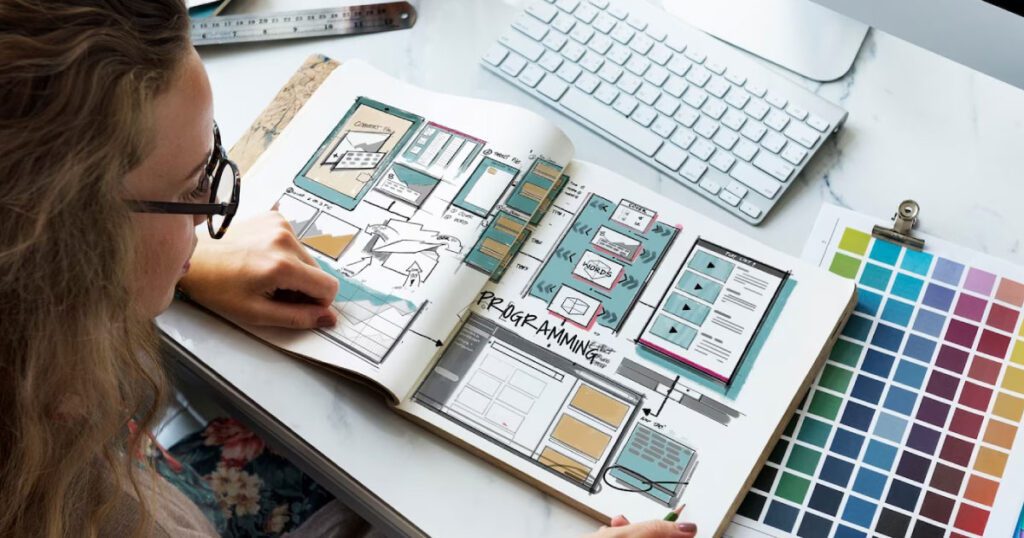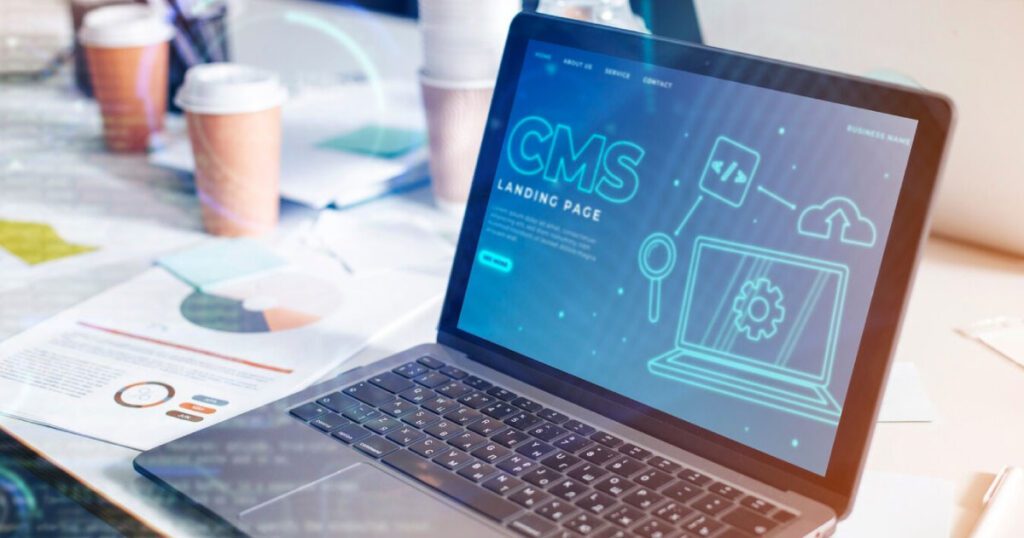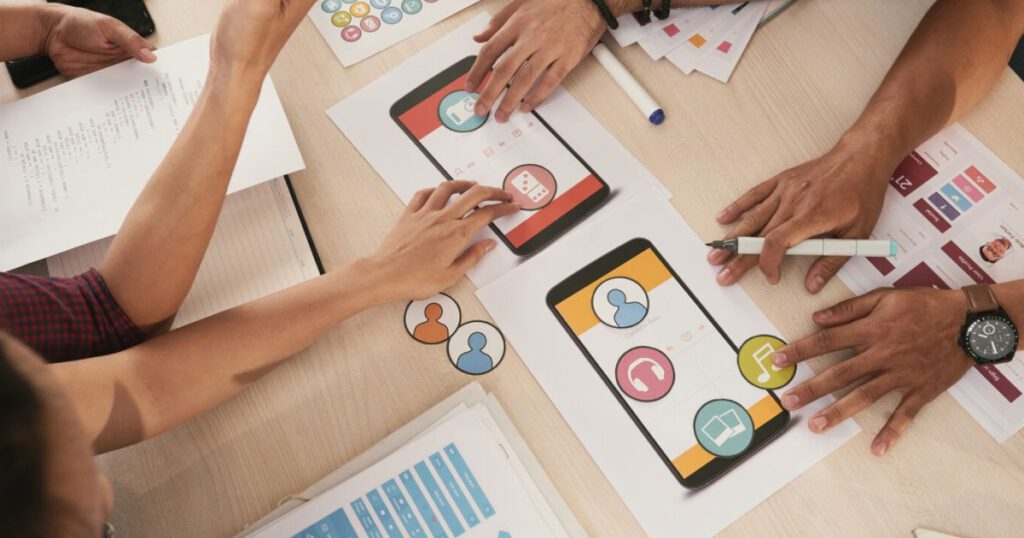Introduction
Businesses today have come to the saving knowledge of strong online presence and building intuitive websites is way to go. This has led to the rise in demand for user interface (UI) developers as their competencies in designing intuitive interfaces directly affects a product success. Because of this, tech driven businesses place a high value on the hiring process of UI developers to ensure the success of their products and the business at large.
Interviews are important aspects of the hiring process as they help assess not only the candidates’ technical know-how but also their creative skills in navigating contemporary web design. UI developer interview questions sets the ground for business to identify the best candidate who can transform design concepts into functional user centric interfaces. In a field where adaptability and versatility are prized above all, employers can therefore glimpse into the problem-solving skills, adaptability, flexibility and ability to ensure cross browser compatibility of candidates through skillful interplay of UI developer interview questions.
This article offers a broad range of carefully selected and organized UI developer interview questions for employers to be able to scrutinize a potential candidates’ skills and expertise from every possible angle and it also gives incoming UI developers the confidence to ace any interview through the UI developer interview questions examined in this article.
The Role of a UI Developer
The user interface, or UI, is an important aspect of the web and application development landscape. The main responsibility or role of UI developers is to translate design concepts into interactive, useful user interfaces that harmoniously combine aesthetics and functionality. UI developers must have a deep understanding of both design principles and coding languages, as this position combines technical expertise with artistic skill. Creating dynamic, interactive digital experiences out of static design mockups, which are frequently provided by UX designers, is the primary responsibility of a UI developer.
They construct layouts with great care, use complicated stylistic methods, and apply responsive design concepts to make sure the user's journey is simple to understand and visually appealing. With the skillful application of HTML, CSS, and JavaScript, UI developers give designs life by building an interface that appeals to users. A UI developer essentially acts as the link between design and functionality, giving static screenshots and wireframes life and resulting in an engaging, user-centered digital environment.
Their capacity to strike a balance between technological know-how and aesthetic flare is crucial in the creation of interfaces that create a lasting impression on users and considerably increase a product's success. Another aspect of web development that stands out is User Experience (UX) and it is sometimes confused with UI as they work together. And this is why it is crucial to make a distinction between the two. UX covers a wider range of the user's total experience, whereas UI concentrates on the tangible aspects that users interact with, such as buttons, menus, and visual components.
The entire user journey, including research, wireframing, prototyping, and testing, is the responsibility of UX specialists. In order to make their ideas a reality, UX designers and UI developers collaborate. This ensures that the interface accurately reflects the intended user experience. Their responsibility goes beyond simply implementing design components; in order to ensure a smooth experience across a wide range of devices and platforms, they must also take into account aspects like performance optimization, cross-browser compatibility, and accessibility.
Core Competencies and Skills
A skilled UI developer possesses a broad skill set that combines technical proficiency with artistic sensitivity. They can create interfaces that are not only aesthetically pleasing but also intuitive in terms of functionality, creating a remarkable user experience.
Front-end technology competency: A UI developer must be proficient in JavaScript for interactivity, CSS for styling, and HTML for content organization. These languages serve as the backbone of front-end development, enabling programmers to build streamlined, aesthetically pleasing interfaces.
Responsive design skills: It is crucial to customize user interfaces for a variety of screen sizes and gadgets. Whether on a desktop, tablet, or mobile device, responsive design proficiency offers a consistent user experience.

Preprocessors and CSS Frameworks: Understanding CSS frameworks like Bootstrap or Foundation, which offer pre-built components and responsive grids, speeds up the development process. Additionally, knowledge of preprocessors like Sass or Less improves the organization and maintainability of code.

UI/UX Collaboration: It is crucial to work effectively with UX designers. Wireframes, prototypes, and design principles should all be understood by UI developers in order for them to be able to translate these ideas into useful interfaces.

Performance optimization and cross-browser compatibility: It requires knowledge of techniques like feature identification, polyfills, performance optimization through efficient coding, image optimization, and asynchronous loading to guarantee that interfaces operate consistently across multiple browsers and devices.
Accessibility standards: A UI developer should be knowledgeable about accessibility guidelines and use semantic HTML and ARIA features to build inclusive interfaces that are usable by people with impairments.
Collaboration tools and version control: Effective team-based development requires knowledge of Git and collaboration tools like GitHub or GitLab, which enable version tracking, collaboration, and code review.
Top 10 UI Developer Interview Questions
1. How do you approach designing a new user interface?
Start with a strong case study in answer to these UI developer interview questions. You can walk the interviewers through your design process and outline the steps you took before, during and after the design process. Research about the company to know how similar or different your approaches to the design processes are. Tell them what makes your design process unique as you show them your eagerness to follow industry processes.
These UI developer interview questions reveal the candidate's methodology and way of thinking when it comes to UI design. It assesses their ability to carry out in-depth research, take user wants into account, and convert ideas into attainable designs. It also demonstrates how skilled they are at prototyping, wireframing, and paying attention to visual components. A well-thought-out approach to UI design shows commitment to iterative improvement.
2. Can you discuss a time when you received critical feedback on your design? How did you handle it
Being truthful here is the way to go in response to these UI developer interview questions as every UI designer goes through it no matter their level of expertise. The interviewer wants to see how you manage those criticisms so you can also pick a project where you received critical design feedback and describe how your experience led you to make impressive final designs. This hypothetical situation highlights the crucial importance of adaptation and a growth attitude in the journey of a UI developer. This will demonstrate your willingness to learn, adapt and evolve. It also highlights your commitment to producing outstanding user experiences by way of a process of continuous improvement and learning.
3. How do you ensure your designs are both visually appealing and user-friendly?
This is one of the frequently asked UI developer interview questions because of its importance in website development. Your experience comes into play here and you can start with any of the projects in your portfolio. Example; Striking a balance between aesthetic appeal and user friendliness is my topmost goal. I start by thoroughly comprehending the target market and brand identity. My decision of color schemes, font, and artwork is influenced by this and is in line with the core of the brand. In order to ensure usability, I also place a high priority on clear call-to-actions, fluid processes, and easy navigation. Also, by regularly leveraging usability testing and feedback loops, the design is always being improved to make sure it is visually appealing and offers a satisfying user experience.
4. What does a typical day in the life of a UI designer look like?
This is also one of the UI developer interview questions that feeds on your experience as employers are looking to see how much of a team player you are and what you do to keep your focus. Example; UI designer's day combines teamwork, problem-solving, and creativity. First, emails and project management tools are reviewed. Next, brainstorming sessions with stakeholders are held. Design work, including wireframing, mockups, and prototype improvement, takes up the majority of the day. Design choices are made in accordance with user needs and technical viability through regular consultation with UX designers, developers, and project managers. Usability testing and feedback loops confirm design decisions, and the designer stays current with research and skill development. A final assessment of the day's preparation and progress concludes it.
5. Which design tools are you most proficient in, and why?
This is one of the UI developer interview questions that gives you the chance to demonstrate that you are familiar with the features that top tools offer in the context of various projects. Employers are also able to see if you keep current with trends and how you are able to maximize the benefits of existing and new tools. You can go with ‘I am competent in a variety of design tools, each one chosen for its distinct advantages. For seamless prototype capabilities that enable quick iteration and user testing, Adobe XD stands out. For its powerful vector editing and symbol management, which streamlines UI design operations, Sketch is my go-to. Furthermore, I'm skilled in Figma, which promotes real-time communication and is a valuable tool for team projects. Together, these and other technologies provide me with the ability to quickly convert conceptual designs into engaging, user-centered interfaces.
6. Describe other projects you have worked on?
This is one of the UI developer interview questions that allows you share your competencies and expertise with potential employers and clients. You can showcase some of their prior work, such as a financial institution's mobile banking application redesign, a tech company's corporate website makeover, and an e-commerce startup's progressive web app. Show potential employers and clients how you collaborated with cross-functional teams, incorporating user testing and feedback loops and how your expertise in design tools and methodologies allowed you to tackle diverse projects with precision and creativity. Also, emphasized the importance of balancing aesthetics with functionality, delivering user-centric experiences, and utilizing advanced CSS animations for a dynamic user experience.
7. Can you tell of a time you experienced challenges working on a team?
This is one of the UI developer interview questions that potential employers use to gauge your team spirit and how well you collaborate with others and also if you can step in to control a downhill situation. Example; A team had a short deadline and a large amount of work to complete, but due to poor communication about roles, there was misunderstanding, job overlap, and inefficiencies. To fix this, I took the initiative to call a team meeting to clarify roles and duties, and frequent check-ins were established to keep everyone on task. We made a concerted effort to meet the deadline and, in the process, improved our teamwork and communication abilities. This experience confirmed the value of effective project management, flexibility, initiative and clear communication in overcoming challenges and succeeding even in time-sensitive circumstances.
8. What feature of UI design do you enjoy the most?
This is one of those UI developer interview questions that allows you to passionately talk about your work and what you appreciate most about it. For instance; What I appreciate most about UI is the compelling art form that combines originality and usefulness. This is because it necessitates a thorough comprehension of user interaction and behavior. Its dynamic nature encourages creativity and keeps me interested and motivated. UI design has a real, positive influence, and it offers opportunities for creative problem-solving and ongoing learning. The UI design's seamless combination of artistry and practicality is enthralling, motivating, and gratifying.
9. Why is there a collaboration between UI and UX designers?
This is one of the UI developer interview questions that feed on your knowledge of your industry and how best you put that knowledge to use so be sure to dazzle the interviewers. Your answer could be along the lines of… Together, UI and UX designers can produce a smooth, user-focused digital experience. While UI designers develop aesthetic aspects like colors, fonts, and pictures, UX designers concentrate on user research, wireframes, and prototypes. By basing decisions on user behavior and preferences, UX designers are able to collaborate and innovate. Iteratively assessing and improving each other's work makes sure the final product satisfies user requirements and corporate objectives. A cohesive, user-centered strategy that results provides an aesthetically pleasing and understandable experience, setting apart extraordinary digital experiences.
10. Why should we hire you?
This is one of the most asked UI developer interview questions as employers want to know why they should give you the benefit of the doubt among all shortlisted candidates. They want to know what you are bringing on board and why you would suit their business. An excellent response will be one that shows your understanding of the organization’s goals and culture and how your values, skills, knowledge and goals are in tune with those of the organization’s. This is also an opportunity to highlight your skills and what you are bringing on board so do not sell yourself short. Demonstrate your expertise with a proven track record of delivering exceptional designs across various industries through impressive design samples and portfolio.
Evaluating Responses
Strong responses to UI developer interview questions show a candidate's knowledge, real-world experience, and comprehension of design concepts. They strike a balance between technological expertise, creativity, and user-centricity. Strong responses frequently demonstrate a thorough understanding of programming languages and relevant frameworks. Additionally, they must exhibit a mastery of design principles and place a strong emphasis on understanding customer behavior and needs as well as the developer's prowess to work in teams with diverse backgrounds and knowledge. Evaluation of a candidate's fitness for a UI development role must take into account practical examples and real-world experience. They exhibit adaptability, innovation, and knowledge with tools used in the sector.
Soft Skills & Cultural Fit
The success of developers in the field of user interface design depends does not solely on their technical know-how but also relies heavily on their soft skills. A common goal requires effective communication, teamwork, and adaptability. The evaluation of cultural fit includes inquiries into how well candidates handle criticism, collaborate with varied teams, value work settings, prioritize tasks, manage time, and keep up with market developments. These inquiries aid in determining a candidate's receptivity to criticism, capacity for navigating various viewpoints, and capacity for handling pressure and meeting deadlines. In the end, a candidate's success depends heavily on their capacity to remain creative and current with industry innovations.
Conclusion
Being knowledgeable and having the relevant skills in your field of expertise is not enough to land dream jobs or pass interviews these days. You should be able to communicate those skills and abilities and be able to convince the hiring manager, client or interviewer and why you are the right man for the job. Remember to conduct a thorough research on the company of choice to understand their needs and goals and identify how best your expertise can be fully utilized there and also to know if there are possibilities for growth as the field of UI is one that is everchanging. Use the UI developer interview questions above as care off and build on it in preparation for your next Job.



